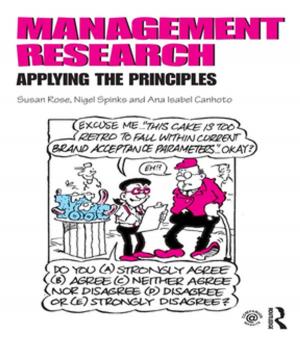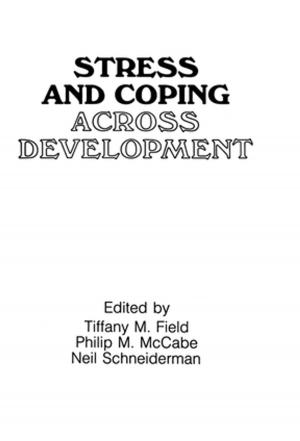Consorting And Collaborating In The Education Market Place
Nonfiction, Reference & Language, Education & Teaching| Author: | Chris Husbands, David Bridges | ISBN: | 9781135792343 |
| Publisher: | Taylor and Francis | Publication: | August 31, 2005 |
| Imprint: | Routledge | Language: | English |
| Author: | Chris Husbands, David Bridges |
| ISBN: | 9781135792343 |
| Publisher: | Taylor and Francis |
| Publication: | August 31, 2005 |
| Imprint: | Routledge |
| Language: | English |
This text offers descriptions and analyses of some of the different ways in which schools and other educational institutions have started to establish new collaborative relationships in today's competitive educational marketplace. Using case studies, the book describes examples of such collaborative structures.; Educational consortia have been established as a vehicle for professional and curriculum development, as a source of mutual support and as a condition of mutual survival. As the "LEA monopolies" have been forced to shed many of their traditional functions or schools have opted out, schools have found it necessary to re-create parts of their collaborative structures out of sheer self- Interest.; For Some Educators Who Continue To Be Attached To Notions Of "an educational service" and professional collegiality in the provision of such a service, inter-institutional collaboration becomes seen as something to be valued independently of the instrumental benefits which it provides. For this variety of reasons, consortium working and collaborative structures seem set to develop in spite of, or as a necessary antodote to, educational markets. Understanding the role and operation of such structures is a necessity for educational managers in all parts of the educational service.
This text offers descriptions and analyses of some of the different ways in which schools and other educational institutions have started to establish new collaborative relationships in today's competitive educational marketplace. Using case studies, the book describes examples of such collaborative structures.; Educational consortia have been established as a vehicle for professional and curriculum development, as a source of mutual support and as a condition of mutual survival. As the "LEA monopolies" have been forced to shed many of their traditional functions or schools have opted out, schools have found it necessary to re-create parts of their collaborative structures out of sheer self- Interest.; For Some Educators Who Continue To Be Attached To Notions Of "an educational service" and professional collegiality in the provision of such a service, inter-institutional collaboration becomes seen as something to be valued independently of the instrumental benefits which it provides. For this variety of reasons, consortium working and collaborative structures seem set to develop in spite of, or as a necessary antodote to, educational markets. Understanding the role and operation of such structures is a necessity for educational managers in all parts of the educational service.















